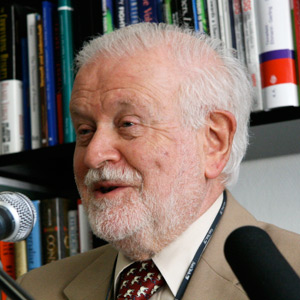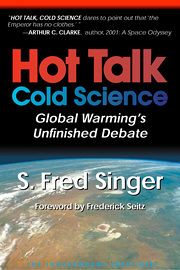COP-21, the 21st Conference of the Parties (to the Global Climate Treaty) is convening in Paris (November 30 to December 11, 2015) to try to impose global restrictions on the emission of the greenhouse (GH) gas carbon dioxide. The usual cast of characters will show up—delegates from nearly 200 nations, who have made a lifetime career out of the climate business, plus some 15,000 hangers-on. We think they will fail to reach an effective international agreement—for a variety of reasons: Important developing countries have other priorities; scandals are brewing and may flare up; and the climate itself is not cooperating. But the media will portray Paris as a huge success, trying to burnish the environmental-climate legacy of President Barack Obama.
Paris will be a big “nothing-burger”
Do you remember Anne Gorsuch, who may have coined this pungent term? She was the first female administrator of EPA, and rather different from both Lisa Jackson and Gina McCarthy. Gorsuch served for a couple of years in the Reagan administration, during which time she managed to cut the EPA budget and slim down the agency. She proved that a determined administrator can do something to rein in the regulatory excesses of the EPA. [Actually, one of the most effective ways of achieving that goal might be to expand the EPA office in Alaska, and then transfer most of the Washington activists to that office.]
Outlook for global agreements
President Obama has been actively pushing nations to make commitments on cutting CO2 emissions, and most have obliged him by making meaningless commitments that will have very little effect on actual levels of carbon dioxide—and even less on the world climate.
China has agreed to peak its emissions in 2030, but do nothing to stem growth in the remaining 15 years. They calculate, apparently, that by then their population and demand for electric power will have stabilized. In other words, their “commitment” involves no real hardships.
Similarly, in a half-hearted commitment, India will also peak its emissions sometime around the middle of the century. However, India’s actual plan is to double its domestic coal production in the next 5 years and then continue to use fossil fuels to generate the electricity that is badly needed by its population.
Southeast Asia is another rapidly growing user of fossil fuels to generate electricity. In Europe, eastern nations will continue to build coal-fired power plants. Even Germany is turning to coal, having foolishly decided, after Fukushima, to phase out their well-operating nuclear reactors.
By mid-century, US emissions are likely to be less than 10% of world total and thus of little consequence.
Perversely, Obama has pledged to commit the US to reduce emissions by 28 percent by 2030, compared to 2005 levels, by trying to use EPA’s “Clean Power Plan” in his promised “war on coal.”
When challenged by Russia on his leadership in the Middle East, Obama replied (on Sixty Minutes, on Oct 11): “My definition of leadership would be leading on climate change, an international accord that potentially we’ll get in Paris.” Note that Congress has not been consulted on these matters; it is likely that a future White House will simply cancel his US commitments; and the world is aware of this.
Will ShuklaGate play a role in Paris?
Many people think that the leak of Climategate e-mails in Nov 2009 played an important role in scuttling any climate agreement at COP-15 in Copenhagen. The e-mails exposed the sleazy actions of a US-UK group of IPCC scientists and their attempts to suppress any contrary opinions: through misuse of the peer-review of independent research, by bullying editors of scientific journals (often with their connivance), and even by the manhandling of fundamental data (“hide the decline” [of temperature]).
Might history repeat itself? Could Shukla-gate play a role in derailing any Paris agreement? Prof. Jagadish Shukla has been accused of extracting $63 million of US government funds, much of it flowing into his and family members’ pockets. His downfall came when he organized a very public campaign against scientific skeptics, accusing them and their financial supporters of bad faith and profiteering. Some ask the question: How do you say ‘chutzpah’ in Hindi?
This dirty laundry will on full display in Congressional hearings being organized by Rep. Lamar Smith (R-TX), chairman of the House Committee on Science. They may help convince the public, here and abroad, that hyped worries about global warming are mostly driven by money. Other examples come to mind: the promised $100-billion/year subsidy (bribe?) to developing nations (that perversely include China!), Solyndra and a plethora of other ‘clean’ energy projects, Al Gore’s rise to become a centi-millionaire, and many more. Undoubtedly, envy plays a role here—in addition to concern about how tax money is wasted. Why have we spent some $25 billon on climate science just in the past decade if the “science is settled?”
Will the Verdier scandal affect COP-21?
Philippe Verdier, a household name for his nightly TV weather forecasts on France-2, has been taken off air after criticizing the UN-IPCC (Intergovernmental Panel on Climate Change). Mr Verdier claims in the book Climat Investigation (Climate Investigation) that leading climatologists and political leaders have “taken the world hostage” with misleading data. Top climate scientists, who often rely on state funding, have been “manipulated and politicized.”
He specifically challenges the work of the IPCC, saying they “blatantly erased” data that went against their overall conclusions; he also casts doubt on the accuracy of their climate models, which assert that temperatures could rise by up to 4.8°C if no action is taken to reduce emissions of carbon dioxide.
Mr Verdier writes: “We are undoubtedly on a plateau in terms of warming; and the cyclical variability of the climate doesn’t allow us to envisage if its natural rhythm will tomorrow lead us towards a fall, a stagnation, or a rise [in temperature].” He added: “We are hostage to a planetary scandal over climate change—a war machine whose aim is to keep us in fear.”
His book was criticized as full of “errors” by newspaper Le Monde (the FrenchNY Times): “The models used to predict the average rise in temperatures on the surface of the globe have proved to be rather reliable, with the gap between observations and predictions quite small.” But this fanciful claim is quite untrue; while IPCC climate models calculate a steady rise in global average temperature (matching a corresponding rise in atmospheric CO2), the actual observations record no detectable warming trend for almost 20 years—in spite of a CO2 increase of nearly 10%.
Verdier said he decided to write the book in June 2014, when Laurent Fabius, the French foreign minister, summoned the country’s main weather presenters and urged them to mention “climate chaos” in their forecasts. “I was horrified by this discourse,” Mr Verdier told a magazine. “What’s shameful is this pressure placed on us to say that if we don’t hurry, it’ll be the apocalypse,” he added, saying that “climate diplomacy” means leaders are seeking to force changes to suit their own political timetables.
Meanwhile, similar ideas have been advanced in the US. Wikipedia reports: In “Climate Science Is Not Settled,” a 2014 essay published in the Wall Street Journal, three years after stepping down as Under-Secretary for Science of DOE, Prof Steven Koonin wrote: “We are very far from the knowledge needed to make good climate policy,” and “The impact today of human activity [on climate] appears to be comparable to the intrinsic, natural variability of the climate system itself.” Koonin criticized the use of results from climate modeling to support the “scientific consensus” [quotes in original] about climate change, noting that, among other problems, “The models differ in their descriptions of the past century’s global average surface temperature by more than three times the entire warming recorded during that time.”
Regarding climate sensitivity, Koonin wrote that “Today’s best estimate of the sensitivity (between 2.7 and 8.1 degrees Fahrenheit for a doubling of the CO2 level) is no different, and no more certain, than it was 30 years ago. And this is despite a heroic research effort costing billions of dollars.”
COP-21 is unlikely to produce results
Notwithstanding the conclusions of the UN-IPCC and the heavily advertized so-called “scientific consensus” about greenhouse warming, the climate itself is not cooperating with costly policies to cut CO2 emissions—though heavily promoted in the lead-up to the COP conference by UN-toadies and even by Pope Francis. But the opposition by developing nations is determined—and assorted scandals are brewing. After all the hype, Paris-2015 may turn out to be a big (and expensive) nothing-burger and mark the end of COP.









